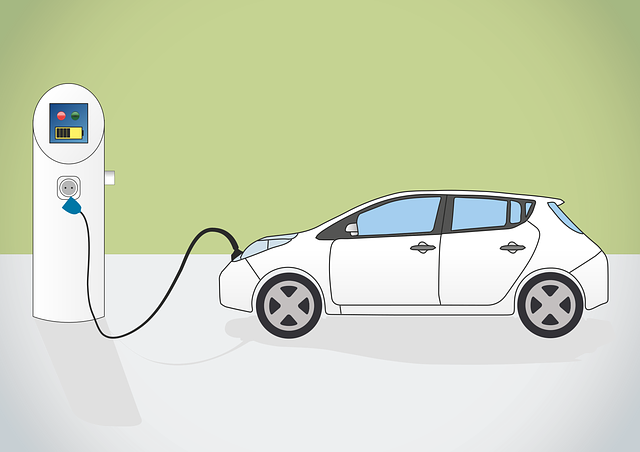
Honda released a video showing a Honda self-driving car driving on the streets of Japan. This autonomous vehicle is different than the robotaxi. It is only used on the road. It uses cameras to detect obstacles and grid processing to generate point groups. Honda's proprietary deeplearning systems analyze the camera data.
The new technology is far from fully automating vehicles. However, it can handle some freeway operations and can merge with traffic better than many people. Honda has set the goal to have an automated level 4 vehicle on the road by 2025. It has also set a goal to eliminate traffic collisions by 2040.
Honda has been developing its own autonomous technology for more than three years. The company has made considerable progress in its pursuit to become one the world's leading manufacturers of autonomous cars. It has plans to release a partial self driving car next year and a fully autonomous vehicle by 2025.

Honda showcased two different self-driving systems during a Tech Day. One system was based on three cameras and artificial intelligent. The other relied on a reference point and an in-vehicle screen to display sensor data. These systems were used to navigate through cities without the use of radar. Although it is a positive step forward it needs more testing before it could be put into production.
Japan was the first to test Level 3 technology by the company. Honda research vehicles were used to test the driverless technology in highways. They drove more that 25,900 kilometers on German roads. They were involved with 14 minor collisions. The prototypes came with radar and lidar equipment.
Honda Sensing Elite offers a more advanced version its driver assistance technology. It also features adaptive cruise control and lane centering. If the vehicle is stopped suddenly, it can stop itself and notify the driver to reengage controls. The horn will sound if there is a collision. If the vehicle is in need of re-alignment, the system will assist the driver by turning the steering wheel and re-engaging the brakes.
The company is working on an entirely autonomous system. In March 2021, the company will launch the first section of its system in a modified Honda Legend sedan. This version will include the first Level 3 self driving technology from Honda. It will be available for lease in Japan in a limited edition of 100. By 2020, the Honda Odyssey will have the second part. The vehicle will include a high-definition satellite map, other sensors that determine its position, and GPS data.

Honda will continue to develop active safety systems, even if it does not have a fully autonomous car. Honda believes that the modern man is too busy to drive. Honda's vision is to provide a vehicle that makes it possible for people with disabilities to drive.
FAQ
What qualifications is required to become an mechanic?
To become a technician, you will need to pass a series exams. These include:
-
A general knowledge assessment
-
A practical exam
-
An apprenticeship test
These tests are meant to help you grasp the fundamentals of mechanical engineering and physics, before you begin your journey as a mechanic.
You'll be eligible for work as a mechanic after you have passed the tests. You'll still need an apprenticeship. This will involve training in the trade.
You'll need to attend classes and workshops to learn everything you need to know about repairing vehicles. It will be necessary to work alongside experienced mechanics.
To be a successful mechanic, you will need to have a high degree of concentration and attention. Vehicle repairs require you to be very attentive.
You'll need patience and persistence to become a successful mechanic. If you don’t like following directions, then this career path may not suit you.
However, if you love cars or enjoy working on them, you might be happy in this field.
Is automotive mechanic a promising career?
The automotive industry is full of exciting opportunities for those who are dedicated to excellence. The best way to succeed in this field is by working hard and learning as much as possible from others.
Your job will require you to be a good communicator as you'll be talking to customers and other employees. It is important that you are willing to travel, work long hours and be able to commute.
Consider taking classes at local universities or community colleges if your goal is to pursue a career in the automotive industry. Many schools offer programs specific to students interested in sales, auto repair, or customer service.
If you decide to pursue a degree, you should study mechanical engineering. You can get your bachelor's degree in as little as four years.
Many companies will hire students straight out of college. So, it is wise to begin searching for employment while you are still able to study part time.
After you complete your education, you may need to undergo some type of training before you can become an automotive technician.
This means that you will need to pass tests such as the Automotive Excellence (ASE) certification exam. This exam covers topics such as engine maintenance, brakes and suspension.
Once you pass the ASE test, your license can be applied for by the National Institute for Automotive Service Excellence.
A license permits you to repair private vehicles. In exchange, you'll receive compensation based on the number of services performed.
It's important to note that not all states require licensing. If you intend to work in another state, however, you will need a license.
Some states don't issue licenses until after completing a certain amount of training. If this applies to you, then you may need to find another option.
How long is an automotive mechanic apprenticeship
An automotive mechanic apprenticeship takes around three years to complete. This includes two year at school as well as two years as an apprenticeship. The first year is used to learn all aspects of the trade including safety procedures and theory. You'll also learn the safe and efficient use of tools during this first year. You'll spend the second year in on-the-job training, where you will gain experience in various trades. These are also the times you can attend formal courses.
The final year of the program is spent gaining qualifications and becoming certified in the field. These include NVQs or National Vocational Qualifications. These are earned after passing exams that cover specific topics in the industry. Additionally, HNCs are Higher National Certificates that cover general subjects such management, customer service, and business administration. Finally, there are City & Guilds certificates that are offered for those who wish to become qualified in certain trades.
What is the distinction between a mechanic or an automotive technician?
These two jobs are very similar but not identical. Both a mechanic and an automotive technician can repair cars.
A mechanic must possess good manual dexterity, and be able perform simple tasks efficiently. A mechanic must be able diagnose and fix problems quickly and accurately.
A technician in automotive is more technical than a mechanic. They must be able and able to read blueprints as well as use tools like drills or wrenches.
They should be able safely to perform complex procedures. They must also be familiarized in different types and electrical systems.
They must also understand the interplay of different parts.
As a result, a mechanic usually earns less money than an automotive technician. Both careers have many options.
What are the qualifications for an automotive technician
You must have completed high school or GED with good grades in maths and English. It is also necessary to be able both to read and to write. To be allowed to work, you must pass a written and practical test.
What do I need to know about car mechanics?
To be an auto mechanic, you don't have to know much about cars. You only need to know how to fix them. This is why most people get started with simple jobs such as changing brake pads or tires. Then they move on to more difficult repairs.
You'll need the ability to read and understand diagrams and to follow simple rules of good practise. You will also need to understand how parts should be replaced or repaired.
It is important to remember that proper training and guidance are essential for anyone who attempts to repair vehicles. This is especially true if you deal with expensive components such as engines or transmissions.
Even though you don't need to be an expert on cars, it is important to understand the fundamentals of mechanical engineering and physical physics. This includes understanding the mechanics of how engines and brakes work.
You should also be ready to handle all kinds of situations. If your vehicle has been in an accident, you might need to be able to handle it. Experience with accidents and breakdowns is also a must.
You must also be willing to learn quickly. As well as being able to diagnose problems, you'll need to be able to perform simple maintenance tasks such as tightening nuts and bolts.
Statistics
- 52% of Mechanics in the United States think their salaries are enough for the cost of living in their area. (indeed.com)
- There were 749,900 jobs available for automotive service technicians and mechanics in 2016, which is expected to grow by six percent through 2026. (jobhero.com)
- According to the BLS, total auto technician employment is expected to exceed 705,000 by 2030. (uti.edu)
External Links
How To
How to avoid auto mechanic scams
Scamming by auto mechanics can be a serious problem. On average, a consumer spends $1500 per year on auto repairs. This means that there is plenty of people willing to take advantage. However, if you know what to look for, you can avoid becoming a victim. These tips will help you identify scammers before they steal your money.
-
Never pay upfront. It's a scam to ask for payment upfront. You should always ask for payment after work is completed. You can call the Better Business Bureau (BBB) at 1-888-322-8138 if you are unsure if something is legal. They will give you guidance on what to do next.
-
Ask for references. You can contact former customers to confirm that you are dealing with a trustworthy service provider. Check online reviews. Be sure to check online reviews about any business that you deal with.
-
Do background checks. You should never hire anyone without doing a background check. To see if the company has any complaints, check the BBB website. Also, confirm that the vehicle's registration number belongs the owner of the business.
-
Don't be afraid of walking away. Sometimes, even if the business appears legit, they will try to con you into paying too high. Don't hesitate to leave if you feel like you've been taken advantage of. There are many businesses out there that can help you.
-
Be wary of "free" services. There are lots of companies that offer free estimates or free inspections. These companies will often charge you exorbitant fees later. Ask about additional charges before you sign anything.
-
Avoid being pressured. A company may offer you a great deal because they think they are able to charge you less than you should. You should not be forced to buy anything if you find yourself in this situation.
-
High-quality products are what you want. Look for quality parts when looking for a repair shop. For instance, if you require new brake pads you should not go to a place that uses low-quality pads. You should instead go to a shop that is specialized in brakes.
-
Get multiple quotes. It is important for you to compare prices among different shops. When you do this, your chances of finding a fair and affordable price are higher.
-
Keep records. Keep track of every detail related to your repairs. This includes all receipts, invoices, or warranties. Also, keep track of any telephone numbers and addresses you receive.
-
Stay informed